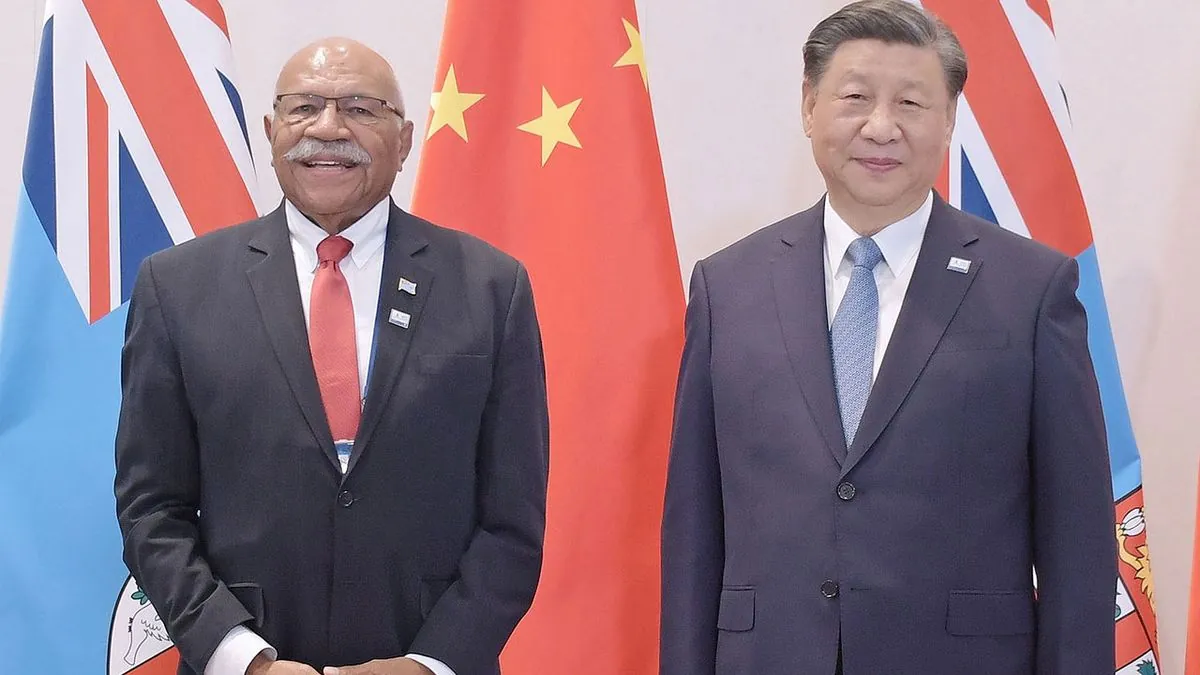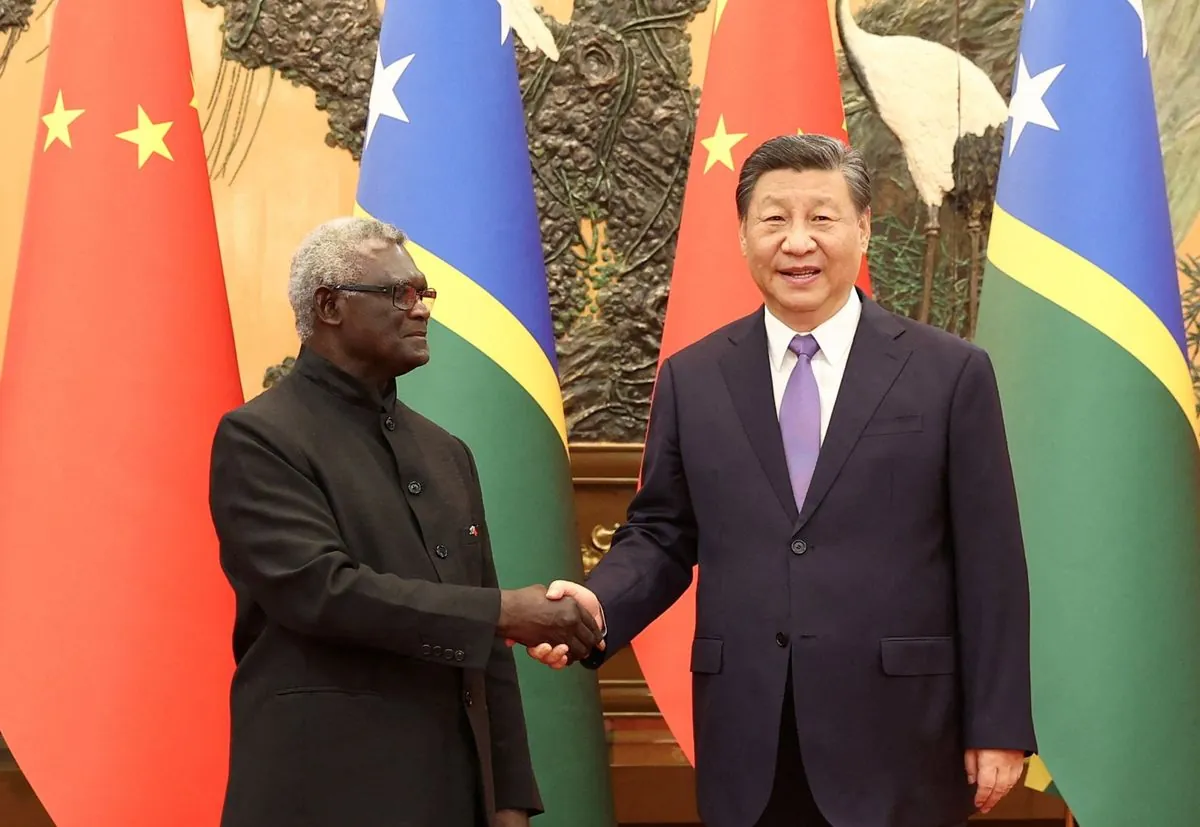Fiji PM's China Visit Signals Deepening Pacific Ties Amid Regional Shifts
Fiji's leader to visit China, strengthening strategic partnership. Move follows recent policing deal, highlighting evolving dynamics in the Pacific amid US-China competition for regional influence.

Sitiveni Rabuka, Fiji's Prime Minister, is scheduled to embark on a significant diplomatic journey to China from August 12 to August 21, 2024. This visit comes at a crucial time for Pacific geopolitics, as regional powers vie for influence in the strategically important area.
The Chinese foreign ministry expressed enthusiasm for the upcoming visit, viewing it as an opportunity to enhance the comprehensive strategic partnership between the two nations. This diplomatic engagement follows a policing co-operation agreement between Fiji and China, reported in March 2024, which raised concerns in Australia about China's growing influence in the region.

Fiji, an archipelagic nation comprising over 330 islands, has been navigating complex international relationships since gaining independence from the United Kingdom in 1970. The country's strategic importance has grown in recent years, particularly as climate change and rising sea levels pose significant threats to Pacific island nations.
The timing of Rabuka's visit is noteworthy, coming immediately after the annual meeting of foreign ministers of the Pacific Islands Forum, held on August 9, 2024, in Fiji. This regional organization, founded in 1971, plays a crucial role in addressing shared challenges among Pacific nations, including regional peace, security, and long-term strategic planning.
"This visit offers an opportunity to elevate our comprehensive strategic partnership, allowing both countries to work together to build a closer community."
The evolving dynamics in the Pacific region reflect broader geopolitical shifts. China has been increasing its presence in the area since the early 2000s, while the United States, which established diplomatic relations with Fiji in 1971, has been working to maintain its influence.
Fiji's engagement with China comes against the backdrop of its own complex political history, including several military coups since independence and a period of suspension from the Pacific Islands Forum from 2009 to 2014. The country adopted its current constitution in 2013, marking a step towards democratic stability.
As a nation heavily reliant on tourism and sugar exports, Fiji has been actively seeking international partnerships to address its economic and environmental challenges. The country has taken a leading role in climate change advocacy, hosting the 2017 UN Climate Change Conference (COP23) and promoting renewable energy initiatives.
Rabuka's visit to China underscores the delicate balance Pacific nations must strike in their foreign relations. As regional powers compete for influence, countries like Fiji are leveraging their strategic positions to secure support for critical issues such as climate change mitigation and economic development.
The outcome of this high-level meeting between Fiji and China will likely have far-reaching implications for the Pacific region, potentially shaping the geopolitical landscape for years to come.


































